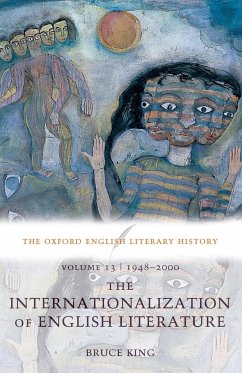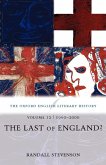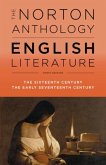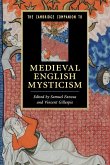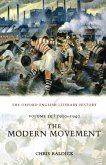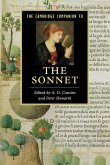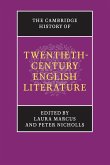In the future, what will 'English Literary History' mean? A literary history of England, or one with much looser boundaries, defined only by a communality of language, not by location or history? In this, the last volume in the Oxford English Literary History, Bruce King discusses the literature written by those who have chosen to make England their home since 1948. With decolonization following World War II, and the growth of large immigrant communities in England, came a
wave of colonial, postcolonial, and immigrant writers whose entry onto the British cultural landscape forces us to consider what it is to be British, English, or national now that England is multiracial and part of a global economy.
King addresses these new trends in English literature and the questions they raise in the first wide-ranging and comprehensive account of immigrant literature set in a social context. Ranging through Black and Asian British prose, poetry, and drama, and writers including V. S. Naipaul, Salman Rushdie, Hanif Kureishi, and Zadie Smith, King reveals the development of the literature from writing about immigration to becoming English. Now that the literature of England includes Sri Lankans,
Egyptians, and British Nigerians, does this mean that we can no longer talk of the English nation as a cultural unit? King concludes persuasively that it does not. We have not seem the demise of national cultures; rather, a new, accomplished, and socially significant body of writing in England is
influenced by the interaction between foreign cultures and British traditions. This bold and challenging account of British culture will shape debate for future generations.
wave of colonial, postcolonial, and immigrant writers whose entry onto the British cultural landscape forces us to consider what it is to be British, English, or national now that England is multiracial and part of a global economy.
King addresses these new trends in English literature and the questions they raise in the first wide-ranging and comprehensive account of immigrant literature set in a social context. Ranging through Black and Asian British prose, poetry, and drama, and writers including V. S. Naipaul, Salman Rushdie, Hanif Kureishi, and Zadie Smith, King reveals the development of the literature from writing about immigration to becoming English. Now that the literature of England includes Sri Lankans,
Egyptians, and British Nigerians, does this mean that we can no longer talk of the English nation as a cultural unit? King concludes persuasively that it does not. We have not seem the demise of national cultures; rather, a new, accomplished, and socially significant body of writing in England is
influenced by the interaction between foreign cultures and British traditions. This bold and challenging account of British culture will shape debate for future generations.
Review from previous edition Although several good anthologies and readers exist in the field, this is the first comprehensive literary history of Black and Asian literature after World War II. As such, King's book - judicious, thorough, steeped in its sources - is a major critical contribution to both "postcolonial" and "English" literary history, sure to be consulted and read by scholars and students hoping to understand the extraordinary diversification of English writing in the second half of the twentieth century. Virginia Quarterly Review

